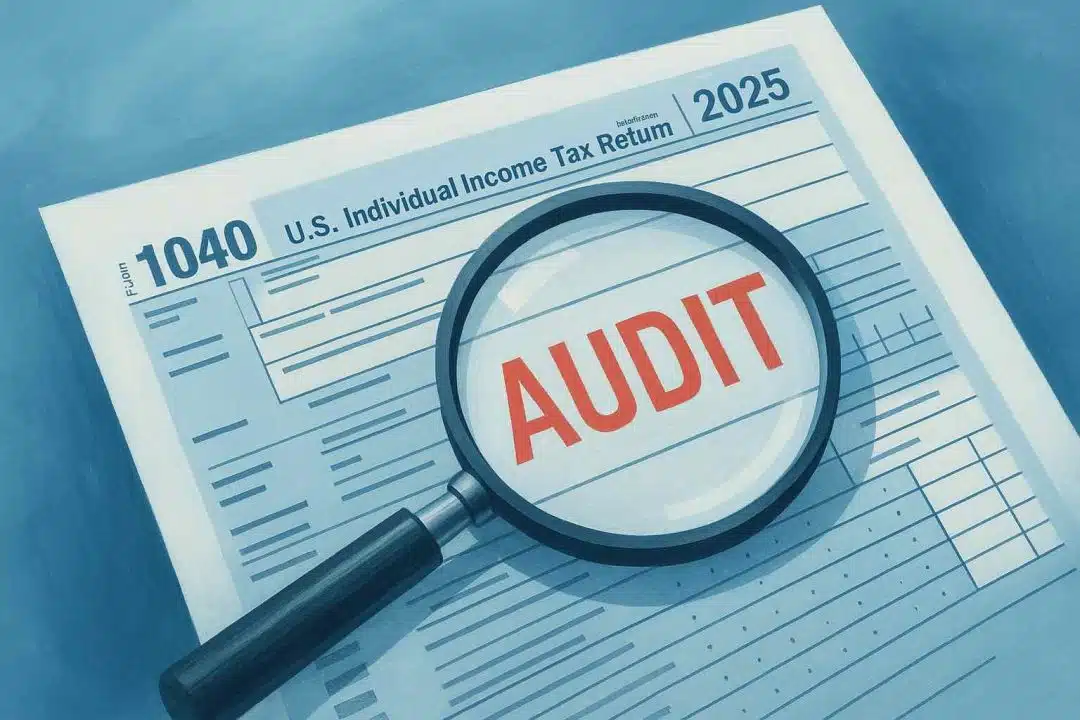Taxpayers could face higher audit risks in 2025 as the IRS ramps up enforcement efforts after years of historically low audit rates. Therefore, it’s important to understand who is most at risk and how to avoid common mistakes that could trigger an audit.

Why IRS audits are increasing
The IRS received a major funding boost in recent years, allowing the agency to hire more staff and improve its data analysis tools. As a result, audits are expected to rise steadily throughout 2025, particularly for certain income groups and filing categories.
Several key factors contribute to more audits, including:
- Increased scrutiny on high-income taxpayers earning over $400,000 annually.
- Expanded use of AI to detect inconsistencies and suspicious patterns.
- A renewed focus on self-employed individuals, small businesses, and gig workers.
- Greater attention to refundable tax credits, such as the Earned Income Tax Credit (EITC).
Who is most at risk of an IRS audit in 2025?
Certain groups face a higher likelihood of being audited this year:
- Taxpayers with income over $400,000.
- Self-employed individuals and gig economy workers who report income on Schedule C.
- Filers claiming large deductions relative to income.
- Taxpayers claiming multiple refundable credits.
- Those with cryptocurrency transactions or large foreign asset holdings.
Notably, high earners and taxpayers with complex financial situations are drawing particular attention from the IRS.
RELATED GUIDE: Where’s my refund now?
How to reduce your audit risk
While no return is completely immune from scrutiny, there are steps you can take to lower your chances of an audit. Here are a few strategies to consider:
- Report all income accurately: Ensure that all income forms (W-2s, 1099s) match what you report.
- Be cautious with deductions: Only claim deductions and credits you can fully substantiate.
- Keep organized records: Maintain receipts, bank statements, and supporting documents for at least three years.
- Avoid mathematical errors: Double-check all figures or use reputable tax preparation software.
- File electronically: E-filing reduces errors and speeds up processing.
If you are audited, respond promptly and provide complete documentation. Doing so can help resolve the situation quickly.
Bottom line
Audit rates are still relatively low compared to historical averages; however, they are climbing in 2025. Therefore, careful and accurate filing is the best defense against unnecessary IRS scrutiny.
For more IRS updates and audit resources, visit irs.gov.
Related Reading
Want to check out more from FL1? Check out these related topics!
- Your Life, Your Money
- Stimulus Check News
- DOGE News
- Food Stamps & SNAP News
- Social Security News
- SSA Cost of Living Adjustment News
- IRS News
- Child Tax Credit News
- Latest from Congress
- Gas Prices
- Medicaid
- Medicare
Stay informed. For the latest breaking news and headlines from across the FL1 National Desk subscribe using the Google pop-up prompt or download the FingerLakes1.com App!
